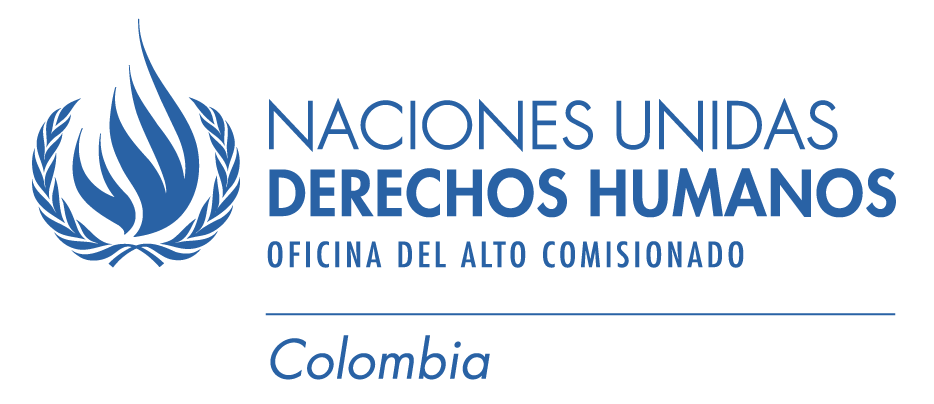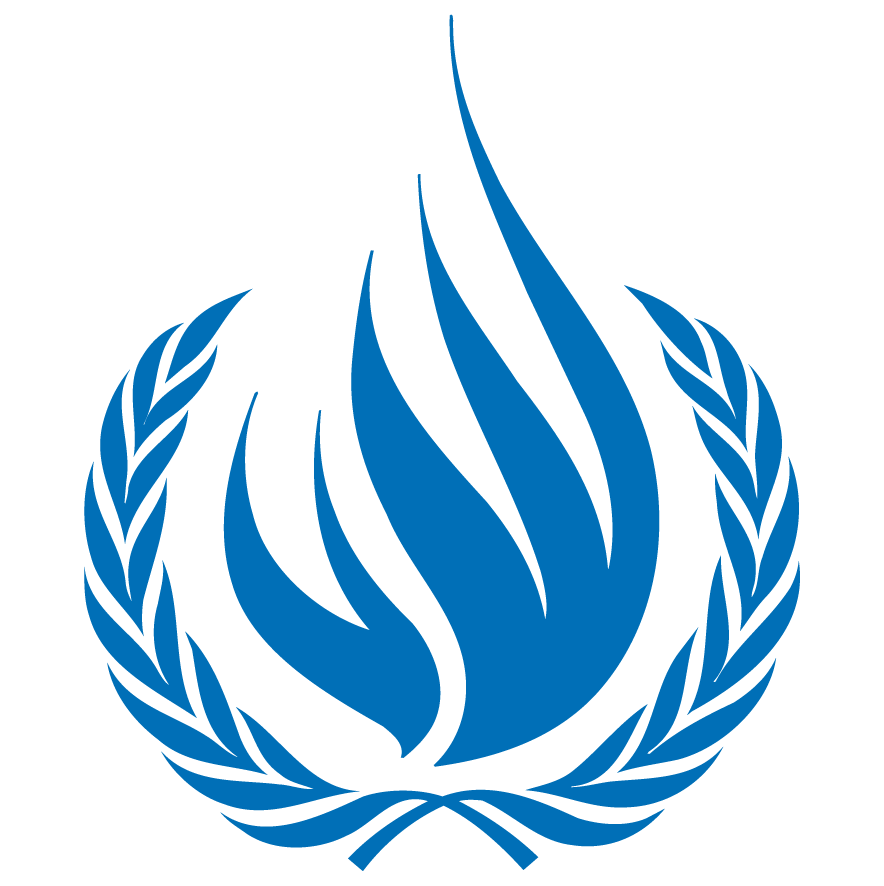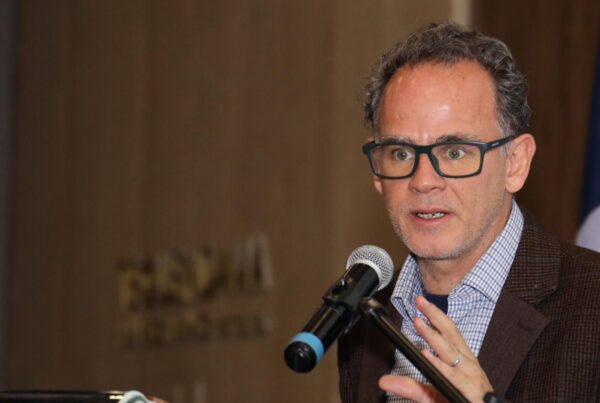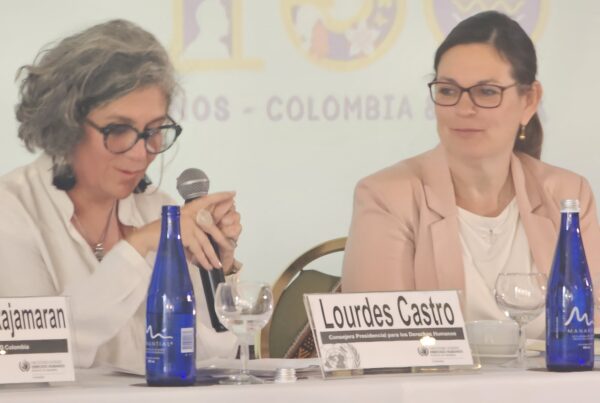Keynote Address of
Louise Arbour
UN High Commissioner for Human Rights
Dear friends and colleagues,
Thank you for inviting me to your meeting here in Berlin. It is a pleasure for me to join this distinguished gathering of judges, lawyers, academics and human rights defenders to discuss one of the most compelling human rights issues today. The International Commission of Jurists (ICJ) has always been at the forefront of addressing current and future challenges. Your pioneering work for over 50 years to define the parameters of the rule of law, the independence of the judiciary and the role of lawyers in a changing world, has inspired countless legal practitioners throughout the world. I share your ideals and commitment to advance the legal protection of all human rights.
It will not surprise you to hear that I believe firmly in the role of law to guide us through difficult societal challenges. Law is the premise on which I would like to exercise my mandate as High Commissioner for Human Rights. For it is law, after all, that evens the playing field between the State, with its legitimate interests including national security, and the individual, with his or her legitimate interest in liberty and personal security. But when I speak about the law, I do not mean of course any law. Law, as any other institution, is subject to abuse. Apartheid South Africa was governed by laws that regulated oppression and led to horrific denial of dignity. The law that must guide us is that law which is capable of delivering justice and providing remedies for grievances. It is a dynamic and reliable institution that is capable of preserving the rights of all while adapting itself to the needs of a changing world. This is the role of human rights law – the body of law that my colleagues and I are entrusted with promoting and protecting on behalf of the international community.
Some say that the main problem with human rights law is its weak enforcement mechanisms. I think this assumption is less true than it once was. To start with, as lawyers we should be proud of our collective achievements in turning human rights ideals into legal obligations that most States now voluntarily accept at the international and domestic levels. Through the ratification of human rights treaties and their incorporation into domestic constitutional and legal systems, individuals have been able to assert and claim their rights. We have seen inspiring judgments from courts at all levels in all continents that turn human rights into a reality for ordinary people across the globe. These are not small accomplishments.
At the international level too, I feel that every day we are moving closer to making international human rights law a universally enforceable branch of international law. While the implementation of human rights law rests ultimately in the hands of states, the creation of the International Criminal Court (ICC) under the Rome Statute, now ratified by 94 States, provides a new legal infrastructure for acknowledging the personal criminal responsibility of those who plan, instigate or perpetrate genocide, war crimes or crimes against humanity. The ICC is an historic advance in international law. It will no doubt build on the contribution of the two ad hoc tribunals for the former Yugoslavia and Rwanda that articulated many essential aspects of international criminal law, including the elements of crimes such as genocide, torture, and rape as an act of genocide or as a crime against humanity; the complex regime of command responsibility for those crimes; the elaboration of appropriate witness protection measures; and the essential need for proper legal defence for those accused of committing these most serious crimes.
Human rights law has also advanced as a factor in examining major conflicts that affect international peace and security. Certainly the increased visibility of human rights on the Security Council agenda is significant, although I believe we can still make more progress. The endorsement of the human rights law approach by all the judges in the recent Advisory Opinion of the International Court of Justice on the Legal Consequences of the Construction of a Wall in the Occupied Palestinian Territories has highlighted the increasing significance of this body of law. Yet, I acknowledge that we have far to go before achieving the full acceptance of international law, including human rights law, as the main instrument to guide international relations, and in particular peace and security issues. And the challenge of implementing judgments of the World Court is less than the one we face in Geneva, to ensure the impact of quasi-judicial mechanisms such as the treaty bodies that monitor application of the UN human rights conventions. One of my main goals as High Commissioner is therefore to contribute to strengthening of the rule of law at both the national and international levels.
This brings me to the very timely subject of this conference: human rights and counter-terrorism.
Last week, in Geneva, the Secretary-General led the United Nations family in a moving memorial to the victims of the attack on the UN headquarters in Baghdad of 19 August 2003 that claimed the life of my predecessor, Sergio Vieira de Mello, and 21 other men and women, and injured over 150 others, some very seriously. The families of the victims and the survivors expressed not only grief and sorrow, but also dignity and a quest for justice. I was struck once again by the intensity of the need to know and to understand what happened to victims of violence and by the intensity of the desire for justice by victims of crime.
Although terrorism is not new in our lives, many domestic and international policies are now focused on how to deal with this menace. These policies beg key legal questions that need to be addressed. The first one is: what is terrorism? In its popular understanding, the term “terrorism” seems to refer to an act that is wrong, evil, illegitimate, illegal, a crime – even an international crime. For legal purposes, we need of course a somewhat tighter definition. For example, we may need a strict definition to satisfy the principle of nullum crimen sine lege. Many claim that there is too much room for abusing the term “terrorism” in the absence of a universally-agreed definition. This is true to a point. Yet many of the elements of the crime of terrorism are already established. The International Convention for the Suppression of the Financing of Terrorism, which has been ratified by 120 States, defines terrorism, for the purposes of the treaty, to include “any act intended to cause death or serious bodily injury to a civilian, or to any other person not taking an active part in the hostilities in a situation of armed conflict, when the purpose of such act, by its nature or context, is to intimidate a population, or to compel a Government or an international organization to do or to abstain from doing any act.”
The International Criminal Tribunal for the Former Yugoslavia referred to this definition when, on 3 December 2003, it convicted an individual for the first time for the crime of terror, committed in this case against the civilian population of Sarajevo. The Majority considered this to be a war crime covered by article 3 of its Statute. It rejected claims that convicting a person on the basis of this crime violated the principle of nullum crimen sine lege. The Majority concluded in this case, known as Prosecutor v. Galic, that the crime of terror against the civilian population is constituted of elements common to other war crimes, in addition to further elements that it drew from the Financing of Terrorism Convention.
This is a landmark judgment, although it only addresses the crime of terror as a war crime. During the elaboration of the Rome Statute, several delegations argued for the inclusion of the crime of terrorism in the jurisdiction of the ICC as a separate crime. The majority of States disagreed, however, precisely because of the issue of the definition. The Final Act of the Diplomatic Conference of Plenipotentiaries on the Establishment of the ICC, adopted in Rome on 17 July 1998, recommended that a Review Conference of the Rome Statute, which may take place seven years following the entry into force of the Statute, namely in 2009, should consider the inclusion of several crimes within the jurisdiction of the Court, including terrorism, with a view to arriving at an acceptable definition.
Based on the Rome Statute, some also argued that certain acts of terrorism may already constitute crimes against humanity when they meet the Statute’s thresholds. They considered that the horrific attacks of September 11, and other attacks by groups such as al Qaeda, may fall within these criteria because they are acts of murder committed as part of a widespread or systematic attack directed against civilian populations with knowledge of the attack.
These questions underscore why it is important that the UN Security Council reacted swiftly and with such vigour in the aftermath of 11 September in developing an approach to dealing with terrorism. Security Council resolution 1373 established a legal framework for international cooperation and common approaches to the threat of terrorism in such areas as preventing the financing of terrorism, reducing the risk that would-be terrorists might acquire weapons of mass destruction, and improving cross-border information sharing by law enforcement authorities. The resolution also set up the Counter-Terrorism Committee to supervise the implementation of these measures. Regional approaches have been developed in the context of the Arab League, the Organization of the Islamic Conference, the African Union, the European Union, the Organization of American States, and elsewhere.
Let us be clear: there is no doubt that States are obliged to protect their citizens from terrorist acts. The most important human right is the right to life. States not only have the right, but also the duty to secure this right by putting in place effective measures to prevent and deter the commission of acts of terrorism. This has been the consistent view of regional human rights courts and international quasi-judicial bodies. But counter-terrorism measures cannot be taken at any cost. This is one reason we continue to believe that the Counter-Terrorism Committee should consider, not only the implementation of counter-terrorism measures, but also their impact on human rights.
In one of the last cases in which I participated as a member of the Supreme Court of Canada, we were called to rule on the lawfulness of a new provision of the Criminal Code that took effect as part of Canada’s Anti-Terrorism Act of 2001, which was itself enacted in response to the September 11 attacks. The challenged provision, section 83.28, authorizes so-called “judicial investigative hearings” in which persons believed to have information relevant to acts of terrorism may be compelled to testify under immunity. The case concerned an attempt by the Crown to obtain information from the Appellant relating to an ongoing prosecution for the Air India bombings of 23 June 1985: in one attack, a bomb exploded at Narita Airport in Japan, killing two baggage handlers and injuring four others, while a second bomb less than an hour later exploded on board Air India Flight 182 off the west coast of Ireland, causing it to crash into the sea and killing all 329 passengers and crew.
We had before us several questions, including the role of the judge in the investigative hearing, the need for secrecy of such hearings, the role of counsel for the person subjected to the hearing, and the threshold of relevance and admissibility applicable in such a hearing where information, rather than evidence, is sought. We decided to take a “broad and purposive interpretation of s. 83.28” which accorded with the presumption of constitutionality. We therefore found the challenged provisions of the Act to be constitutional and not in violation of the Canadian Charter of Rights and Freedoms (although we did say that the immunity protections should apply — not only to criminal prosecution — but also to extradition and deportation proceedings). In reaching our decision, we underscored that the challenge for democracies in the battle against terrorism is to balance an effective response with fundamental democratic values that respect the importance of human life, liberty and the rule of law. We said that, “Although terrorism necessarily changes the context in which the rule of law must operate, it does not call for the abdication of law.”
I firmly believe that terrorism must be confronted in a manner that respects human rights law. Insisting on a human rights-based approach and a rule of law approach to countering terrorism is imperative. It is particularly critical, in time of crisis, when clarity of vision may be lacking and when institutions may appear to be failing, that all branches of governance be called upon to play their proper role and that none abdicate to the superior claim of another.
Put bluntly, the judiciary should not surrender its sober, long-term, principled analysis of issues to a call by the executive for extraordinary measures grounded in information that cannot be shared, to achieve results that cannot be measured. This is of course not to suggest that the judiciary should play an obstructionist role when the government is under pressure to react to an unprecedented, acute and immediate crisis. But it is for judges, relying on legal principles, to articulate and apply the parameters of deference when human rights are in jeopardy. Over the long term, a commitment to uphold respect for human rights and rule of law will be one of the keys to success in countering terrorism – not an impediment blocking our way.
For even though it may be painted as an obstacle to efficient law enforcement, support for human rights and the rule of law actually works to improve human security. Societies that respect the rule of law do not provide the executive a blanket authority even in dealing with exceptional situations. They embrace the vital roles of the judiciary and the legislature in ensuring that governments take a balanced and lawful approach to complex issues of national interest. A well-honed system of checks and balances provides the orderly expression of conflicting views within a country and increases confidence that the government is responsive to the interest of the public rather than to the whim of the executive. Ultimately, respect for the rule of law lessens the likelihood of social upheaval, creating greater stability both for a given society and its neighbours.
In fact, human rights law makes ample provision for effective counter-terrorism action even in the most dire of circumstances. Article 4 of the International Covenant on Civil and Political Rights was crafted precisely to afford States the leeway they would need to deal with truly exceptional situations while remaining within a legal framework. Its provisions are for exceptional situations only, namely, those in which “the life of the nation” is threatened. In such situations a State may take emergency measures, provided they are limited to the extent strictly required by the exigencies of the situation, are not inconsistent with the State’s other international obligations, and do not discriminate on specified grounds. Certain rights are of course never subject to derogation, regardless of the nature of the emergency.
Because of the existence of this legal framework, it is essential that measures taken in the context of counter-terrorism be subject to proper review. Counter terrorism initiatives are rarely submitted, in a real time environment, to public debate and the scrutiny of the media, except in an abstract and theoretical fashion. The only effective form of scrutiny for compliance with legal imperatives is in the form of judicial review.
This is what the UN Human Rights Committee insisted upon, for example, with respect to the question of detention. The key consideration is that of remedy: an opportunity for meaningful review and possible release through a procedure that respects due process. No one should be held in indefinite confinement without access to counsel and the courts. In its General Comment No. 29 of 2001, in which it considered States’ obligations under emergency situations, the Committee said the following: “As certain elements of the right to a fair trial are explicitly guaranteed under international humanitarian law during armed conflict, the Committee finds no justification for derogation from these guarantees during other emergency situations. The Committee is of the opinion that the principles of legality and the rule of law require that fundamental requirements of fair trial must be respected during a state of emergency. Only a court of law may try and convict a person for a criminal offence. The presumption of innocence must be respected. In order to protect non-derogable rights, the right to take proceedings before a court to enable the court to decide without delay on the lawfulness of detention, must not be diminished by a State party’s decision to derogate from the Covenant.”
In many countries, courts have been ruling on counter-terrorism measures, frequently validating the views of human rights lawyers on troubling features of their legality or application. These include questions of arrest, deportation, incommunicado detention, prolonged detention without charge or trial, and retroactivity of criminal law.
In the United States, the principle of access to the courts was recently vindicated by the Supreme Court in the Hamdi and Rasul decisions. In the Hamdi case, the Court trod carefully with regard to the prerogative of the Executive to exercise authority over foreign policy and, in particular, the conduct of hostilities. Yet, as Justice O’Connor stated in her plurality opinion, “as critical as the Government’s interest may be in detaining those who actually pose an immediate threat to the national security of the United States during ongoing international conflict, history and common sense teach us that an unchecked system of detention carries the potential to become a means for oppression and abuse of others who do not present that sort of threat.”
The Court, in deciding to apply a balancing test under the Due Process Clause of the US Constitution, recognized that vital interests were at stake on both sides of the equation. Justice O’Connor said, “Striking the proper constitutional balance here is of great importance to the Nation during this period of ongoing combat. But it is equally vital that our calculus not give short shrift to the values that this country holds dear or to the privilege that is American citizenship. It is during our most challenging and uncertain moments that our Nation’s commitment to due process is most severely tested; and it is in those times that we must preserve our commitment at home to the principles for which we fight abroad.” The Court held that a citizen-detainee seeking to challenge his classification as an enemy combatant must receive notice of the factual basis for his classification, and a fair opportunity to rebut the Government’s assertions before a neutral decision maker. As the Court resoundingly declared, “[A] state of war is not a blank check for the President when it comes to the rights of the Nation’s citizens.”
You are also no doubt aware of the other important U.S. decision known as Rasul, concerning detainees at Guantanamo. In that case, the Supreme Court took the view that detainees must be given access to the courts, despite the fact that the camp is situated outside of the United States. The Court stated that “[w]hat is … at stake is only whether the federal courts have jurisdiction to determine the legality of the Executive’s potentially indefinite detention of individuals who claim to be wholly innocent of wrongdoing.” This, it answered in the affirmative, notwithstanding the camp’s location in Cuba and the fact the petitioners were non-citizens.
The Court’s decision in Rasul coincided almost exactly with the issuance by our Human Rights Committee of its General Comment No. 31, on the meaning of article 2 of the International Covenant on Civil and Political Rights. In that analysis, for which ICJ member present here today Sir Nigel Rodley was rapporteur, the Committee underscored that a State party to the Covenant “must respect and ensure the rights laid down in the Covenant to anyone within the power or effective control of that State Party, even if not situated within the territory of the State Party.” The Rasul decision also overlapped in some respects with an opinion of the UN Working Group on Arbitrary Detention, whose chair, ICJ Member Mme Leila Zerrougui, is also with us today. That case concerned one Spanish and three French nationals held since late 2001 at Guantanamo. Finding that no charges had been brought against the four, that they had been unable to consult or obtain legal assistance from an attorney, and that they had not been arraigned by a judge in a competent court, the Working Group concluded that their detention was “arbitrary, being in contravention of article 9 of the Universal Declaration of Human Rights and article 9 of the [ICCPR], to which the United States of America is a party.”
It has been recognized for centuries that courts must play an oversight role in reviewing executive decisions taken with respect to external threats. Let us not forget that the presumption of innocence is a non-derogable right under international law, as the Human Rights Committee reaffirmed in its General Comment No. 29 on states of emergency. In today’s highly-charged atmosphere of fear and uncertainty, there is all too great a risk of a rush to judgment in terrorism cases. Recent acquittals in high-profile terrorism cases in a number of countries, including the Netherlands, Italy, and Japan, teach us that it pays to be vigilant in upholding the presumption of innocence. Nowhere can vigilance be exercised more effectively than in a court of law. This was demonstrated in the case of Mr. Mzoudi, here in Germany, who was acquitted by a court in Hamburg earlier this year of helping the 11 September hijackers. The court reviewed the evidence presented and found that it was insufficient to convict him. A second trial of Mr. Mzoudi started last week in Hamburg.
The Supreme Court of South Africa provided a good example of how courts must insist on the rights even of those accused of acts of terrorism. The case of Mohamed v. the President of the Republic of South Africa, decided in May 2001, involved a Tanzanian citizen who was arrested in Cape Town on 5 October 1999, subsequently detained and interrogated by South African immigration officers and then handed over to agents of the U.S. Federal Bureau of Investigation (“the FBI”) for interrogation and removal two days later to New York, there to stand trial.
Mr. Mohamed was residing in South Africa on a temporary residence permit. He was wanted in the US on capital charges in connection with the bombing of the U.S. embassies in Dar es Salaam and Nairobi. In fact, he had been indicted by a U.S. grand jury and in December 1998, a US warrant for his arrest was issued on charges of “murder, murder conspiracy [and] an attack on a US facility”. The following month Interpol, at the request of the FBI, put out an international “wanted” notice with photographs and a description of Mohamed.
An FBI agent identified Mr. Mohamed while searching through asylum-seeker records in Cape Town with the permission of the Cape Town Chief Immigration Officer. Seeking to renew his temporary residence permit on 5 October 1999, Mr. Mohamed was arrested and questioned by South African immigration officials together with FBI agents. One day later, he was delivered into FBI custody for removal to the United States.
The South African Constitutional Court, whose president, Justice Arthur Chaskalson, is also your president, disapproved of the actions of the South African officials in the case. The Court held that the handing over of Mohamed to U.S. agents for removal to stand trial in the US on charges in respect of which he could, if convicted, be sentenced to death, was unlawful for several reasons. First, it infringed Mohamed’s rights under the South African Constitution to human dignity, to life and not to be treated or punished in a cruel, inhuman or degrading way, since a prior undertaking was not obtained from the U.S. government that the death sentence would not be imposed.
Second, there were procedural deficiencies with the removal process. After reviewing extradition and deportation issues, the Court found there was no legal authority to remove Mohamed from South Africa to the United States. It held that although the government alleged that Mr. Mohamed consented to his deportation to the US, the consent was invalid because he had not been made aware of his right to demand protection against exposure to the death penalty and was at no time afforded the benefit of consulting a lawyer.
Finally, the removal could not validly be effected before the expiry of a three-day period after he had been declared a prohibited person, as required by South African law. The Court thus decided that Mr. Mohamed’s removal to the US was unlawful and, as a remedy, it asked the Director of the Court urgently to convey the full text of the judgment to the trial judge in the US.
My friends,
The urgency of countering terrorism has led States to introduce a range of innovative and sometimes troubling procedures to deal with the competing interests of liberty and due process, on the one hand, and national security on the other. Strict detention regimes, sometimes incommunicado, with restrictions on access to counsel are among the examples we have seen. There has been increased resort to military and other specialized tribunals, an issue which the ICJ has studied in depth. Trials by military commission are just now starting for certain Guantanamo detainees, and we have all heard the concerns expressed by some military defence lawyers appearing before these commissions.
Another procedure is the use of so-called “secret evidence” not made available to the defense. In the United Kingdom, the Anti-Terrorism, Crime and Security Act (ATCSA) of 2001 permits the withholding of evidence and other information in proceedings where national security is said to be at stake. As you know, the Home Secretary has reiterated that a state of public emergency exists in the United Kingdom, and the British Government has formally derogated both from the ICCPR (article 9) and the European Convention for the Protection of Human Rights and Fundamental Freedoms (art. 5).
Under the Act, the Secretary of State can certify a non-UK national as a «suspected international terrorist» if he or she «reasonably (a) believes that the person’s presence in the United Kingdom is a risk to national security, and (b) suspects that the person is a terrorist». If the person cannot be removed from the country, for fear of ill-treatment in another country or for any other reason, he or she will effectively remain in indefinite detention, without charge or trial. More than a dozen individuals are now being held under this provision. The certification justifying detention can be made on the basis of information to which neither the suspect nor his attorney has access. A “special advocate” can be appointed to represent the interests of the accused in appeals to a Special Immigration Appeals Commission (SIAC).
In March of this year, the Court of Appeal of England and Wales rejected a request from the Government to appeal from a decision of the SIAC, which had found that the case against one detainee, a Libyan, was not established. In the decision, the Lord Chief Justice stated, «Having read the transcripts, we are impressed by the openness and fairness with which the issues in closed session were dealt with…. We feel the case has additional importance because it does clearly demonstrate that, while the procedures which [the Commission has] to adopt are not ideal, it is possible by using special advocates to ensure that those detained can achieve justice, and it is wrong therefore to under-value the SIAC appeal process. …” The Special Advocate system may, on its face, infringe on the right to due process. The use of such procedures must therefore be carefully evaluated on a case-by-case basis, depending on the availability of other remedies.
Of course, the availability of reported decisions of the courts supervising such systems provides both for a measure of public scrutiny and, equally important, for commentary by academics and by the legal profession at large.
Other compelling examples of judicial review of counter-terrorism and national security measures help clarify the role that the courts can play. These include the experience in Colombia of the Constitutional Court, which has exercised an important role as an independent review mechanism for states of exception declared by the Executive with respect to that country’s ongoing conflict. The Court’s record in this area has often placed it at the center of controversy, precisely because of the independence which it has brought to its task.
In Indonesia, in July of this year, the Constitutional Court set aside the conviction of a defendant in the Bali bombing case, on grounds that he was convicted through retroactive application of a counter-terrorism law which had come into force six days after the Bali bombings. The margin of the ruling was narrow, 5 to 4. We can only imagine how difficult this decision was to make, in light of the devastating crime that was committed in Bali. Yet in the long run, such decisions serve to strengthen the rule of law.
Like the bar against retroactive application of criminal law, there can be no doubt that the prohibition against torture and cruel, inhuman or degrading treatment or punishment is non-derogable under international law. This is made plain by the ICCPR’s inclusion of article 7 in its list of Covenant provisions that are never subject to derogation. If any reaffirmation of that principle were necessary, it was made by the UN Committee against Torture in November 2001, when it reminded States party to the Convention against Torture of the non-derogable nature of many of the obligations undertaken by them in ratifying the CAT, including the obligations contained in Articles 2 (whereby «no exceptional circumstances whatsoever may be invoked as a justification of torture»), 15 (prohibiting confessions extorted by torture being admitted in evidence, except against the torturer), and 16 (prohibiting cruel, inhuman or degrading treatment or punishment).
Yet we find, remarkably, that questions continue to be raised about this clear dictate of international law, including at high levels of government. You will no doubt be familiar with the intensive scrutiny this matter has received in legal memoranda prepared by senior attorneys in the United States Department of Defense and Department of Justice, addressing standards of conduct for interrogations of persons detained in counter-terrorism operations. One memo argued that the president has the authority as commander-in-chief of the armed forces to approve almost any physical or psychological actions during interrogation, despite U.S. and international laws prohibiting torture. It supplied defenses that officials could use if charged with committing torture, such as necessity, self-defense, or mistakenly relying in good faith on the advice of lawyers that their actions were legal. “Because the presence of good faith would negate the specific intent element of torture, good faith may be a complete defense to such a charge,” according to the memo.
Let us recall the language of article 2 of the Convention against Torture, holding that “[n]o exceptional circumstances whatsoever, whether a state of war or a threat of war, internal political instability or any other public emergency, may be invoked as a justification of torture.” I have been deeply troubled by this debate, as have others including, recently, the American Bar Association. In a resolution approved earlier this month, it said, “It is incumbent upon this organization, which makes the rule of law its touchstone, to urge the U.S. government to stop the torture and abuse of detainees, investigate violations of law, and prosecute those who committed, authorized, or condoned those violations, and assure that detention and interrogation practices adhere faithfully to the Constitution, laws and treaties of the United States and related customary law”.
These are important statements. I am relieved that some issues related to the handling of terrorism cases have come before the courts. It is important that the judiciary – not the executive – is the final arbiter in the interpretation of legal obligations.
In this respect, I would also like to refer to the recent judgment of the Israeli Supreme Court regarding the barrier that is being erected, according to the Government’s argument, to safeguard the population from the threat of suicide bombers and other terrorist acts. As you may remember, just before the International Court of Justice issued its Advisory Opinion in July, the Israeli Supreme Court had already held that part of the separation fence was unlawful. The Court found that the balance between security needs and the needs of the local inhabitants was not judged proportionately, and the hardship caused to the Palestinian villages covered by the petition was disproportionate. It concluded that there was “no escaping of re-routing the barrier”.
More recently, the Israeli Supreme Court also called on the government to address the Advisory Opinion of the International Court of Justice, which I referred to earlier. On 19 August 2004, the Supreme Court ordered the government to produce a statement within 30 days responding to the World Court opinion that the wall is illegal. Last week, the Government of Israel announced a one-year delay in constructing a section of the wall.
I have referred today only to some of the many ways in which the global struggle against terrorism has had an impact on human rights and the rule of law. This is a vast and complex subject which can clearly benefit from more sustained analysis. I am very pleased that Professor Robert Goldman is here today. He has been entrusted as an independent expert of the Commission on Human Rights with the task of advising the Commission at its next session in March 2005 on ways and means to strengthen the promotion and protection of human rights while countering terrorism. The Commission may well consider an extension and a deepening of the independent expert’s mandate, on the basis of Professor Goldman’s submission. I certainly wish him success in his work on what will undoubtedly be one of the most sensitive subjects on the agenda of the Commission next spring.
My friends and fellow jurists,
Terrorism casts a terrible, dark shadow over our world today. Who is not moved by the appalling human cost of atrocities such as those that occurred in New York and Washington, Bali, Israel and the greater Middle East, Moscow, Casablanca, Istanbul, Madrid and, so close to home for some of us, at the United Nations, in Baghdad on August 19, 2003? Although terrorism has exacted a cost from fewer persons than other great human rights crises of our time — war, preventable disease, perhaps above all, poverty and deprivation — we know that terrorism threatens to rob us of one of our most precious values: our commitment to the rule of law.
Once again I can do no better than to quote the late Professor Herbert Packer whose seminal 1968 work “The Limits of the Criminal Sanction” (Stanford University Press) continues to provide, in my view, the most reliable blueprint for recourse to repression by law. His words are very apt to warn against the potential excesses of counter terrorism measures. He said, “Law, including the criminal law, must in a free society be judged ultimately on the basis of its success in promoting human autonomy and the capacity for individual human growth and development. The prevention of crime is an essential aspect of the environmental protection required if autonomy is to flourish. It is, however, a negative aspect and one which, pursued with single-minded zeal, may end up creating an environment in which all are safe but none is free.”
It is incumbent on all of us to ensure that the prevention of terrorism is not pursued with a single-minded zeal that leads us to give up our freedom in exchange for our security.
Thank you.
https://hchr.hrev.org/wp-content/uploads/2004/08/cp0431.pdf
